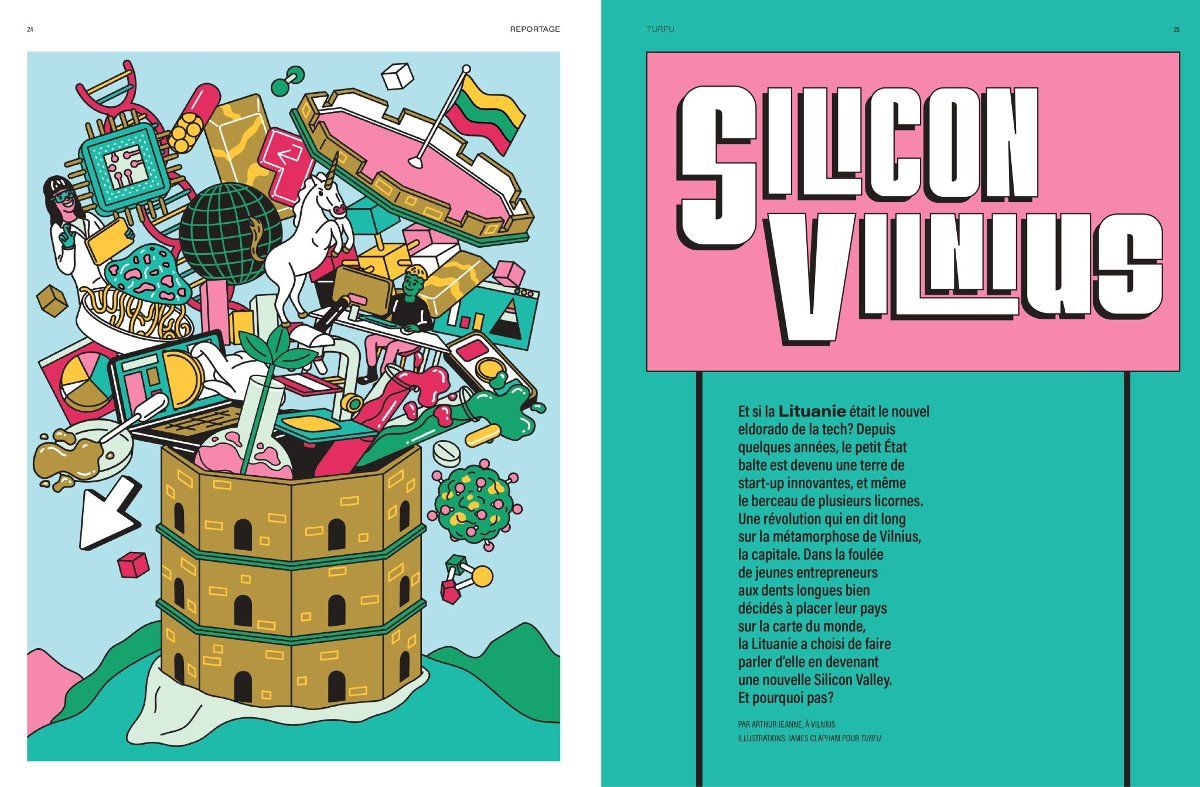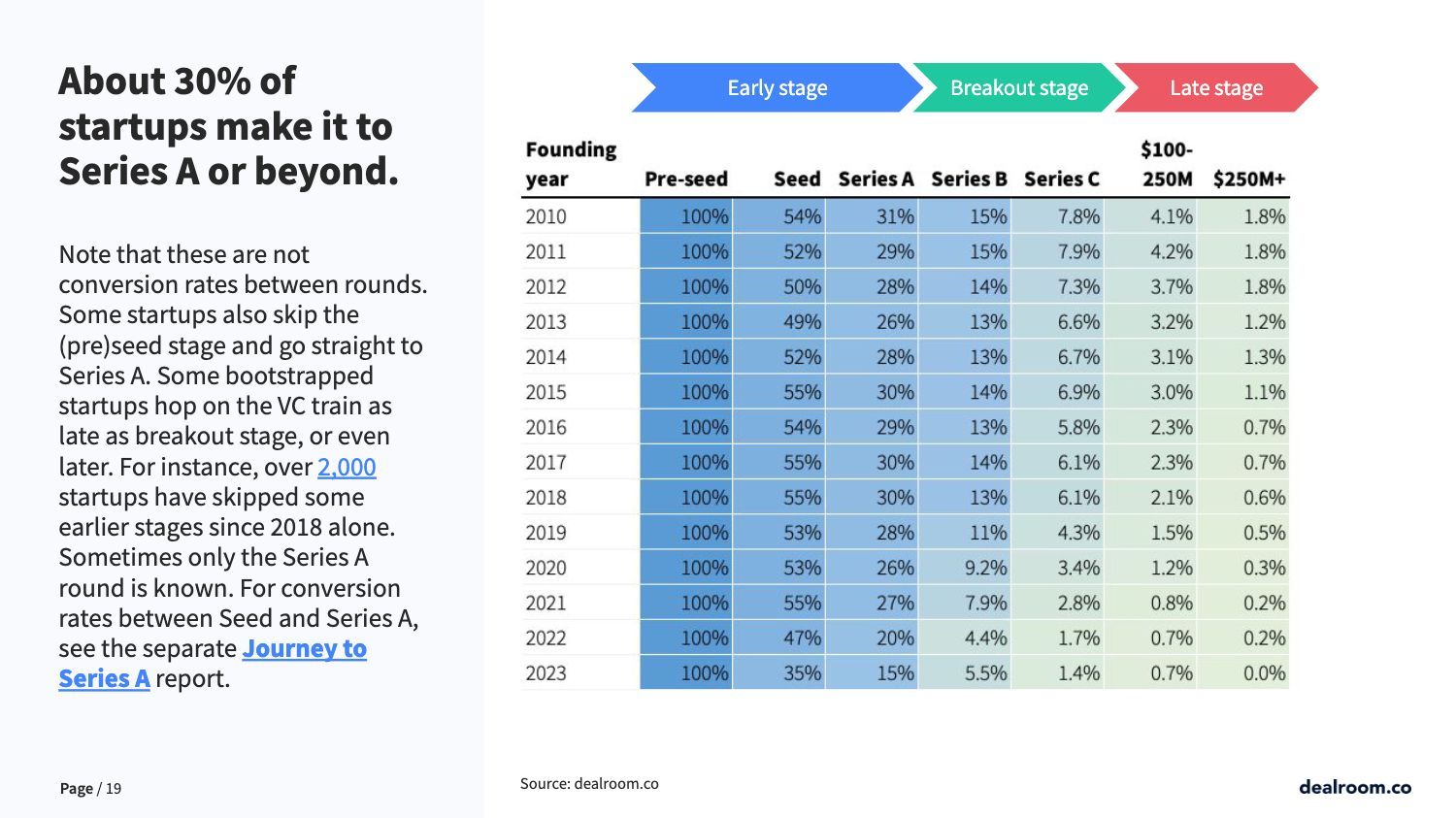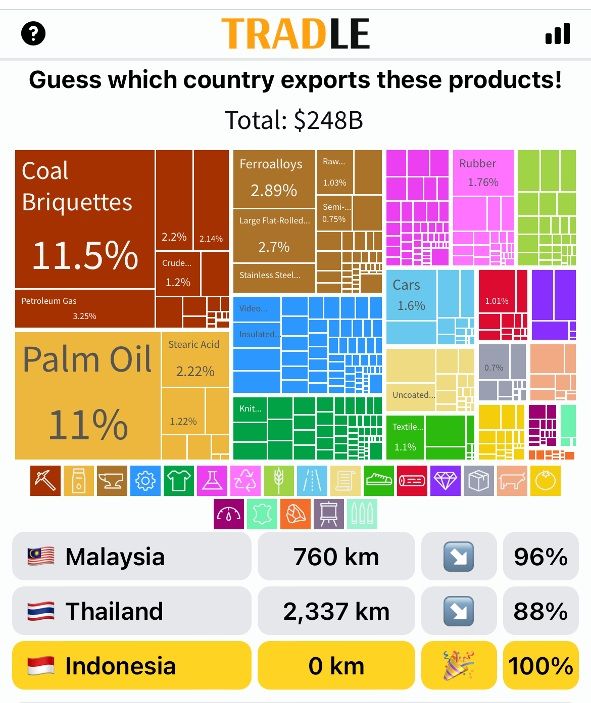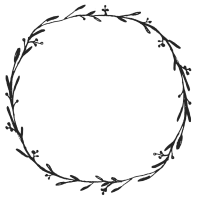Atlas of Complexity

Subscribe - philomaths.tech
X and LinkedIn for fractional updates
Paid partnership - here
We love receiving your comments. One last week was a reaction to our statement that some talent is likely locked at Vinted (and others) until listing or another exit. Reader believes opportunities are limited right now:
[Edited]: The early options that matter have already matured and there are just not enough high growth early stage startups that a) are not a scam b) build products that make sense. Vinted, Teso, Kilo, and others are just able to outcompete early stage startups with their late-venture powered salaries. Anyone with a desire to switch jobs would have to join companies that are just building add-ons or are scamming people. Show me a company that is in early enough stage and has a big potential upside? [...]
Here is how we suggest doing tech job search in Lithuania. Now open for paid members to read and provide feedback. Will make it public later.

work in progress
- Fraction. The growth of all things (and people) "fractional". Partly due to tech management becoming standardized your fractional executive (or agency) can actually help (previously, founders would struggle with corporate "leaders" turned advisors, who come around to "educate and inspire", but have never done a mile starting from zero). This time around Apollo Sinkevicius is bringing friends, some cross-polination happening with East Coast. After exiting Playvox to Prodsight, Tadas Labudis is happy to help you with the product side of things.
- Space. Our love for space startups is linked to economic atlas thinking (see more about this at the very end of the letter). Mining the moon could be a viable business model, helping to open up the space economy - White Pill reports. Mesmerizing video of Nanoavioncs satellite spreading its wings. Astrolight is a team of 15 and generating revenue already. Blackswan Space announced the completion of Eurostars2 project with Vision-Based Navigation System.
- Hardware but being ok. Perhaps being around well-being and consumer GTM helps - Pulsetto is at EUR 1m revenue this year, to open series A soon. Samphire is also confidently heading further, strong founding team and important+ignored problem to tackle. Tukas is combining health with sustainability, will make you cycle to charge the phone...HR Bank deliveries to start soon. Another from Kilo portfolio - even if rope is not exactly hardware - Octomoves closed 2022 with EUR 1.5m turnover.

- Newsletters. We've been on this journey for a long now - hit us a message if you have any questions about newsletters, tools and business models. (Don't ask if you are sending 600k newsletters a week from Pigu.lt, that's another kind). But for all creators considering, see five types of indie newsletter business models, how Karreem Abdul-Jabbar writes "the best newsletter in the world", pods with Packy McCormick, Austin Rief and others by Media Empires. It is simple (not easy) to get started.
- Raise capital. New player - Plug and Play Tech Center won the bid to run acceleration programs in Lithuania, and will receive public funding to deploy. Life Sciences and Deeptech founders - equity-free incubation with Baltic Sandbox Ventures. Fundraising school with BADideas fund.
- Builders talk. What Tomas and Eimantas learned bootstrapping Nord Security. Interview with Jone from FIRSTPICK.
rounds and capital
- Unreported round - in June, RoyaltyRange raised over €4M in a joint investment led by Presto Ventures. Estonian Trind Ventres, Latvian ZGI Capital, and angel investors joined, too. (Subscribing to Presto Newsletter not to miss again!)
- Latvian last-mile startup swotzy received EUR 500k in pre-seed funding, which was led by Black Pearls VC and joined by FIRSTPICK.
- Latvia will bring EUR 93m into the tech ecosystem - ALTUM will be selecting managers to deploy pre-seed, seed, and growth capital for startups.
building blocs
The sky is the limit for Vilnius, but let's work on improving the current ecosystem and all service providers catering tech? Select which vendors are just not up to speed.

roleplay

Sign on Tab - Polish Speaking SDR
Ovoko - eBay Sales Team Manager
GoRamp - Content Marketing Manager
InterioApp - UI/UX Designer
HeavyFinance - Operations Manager
What should you do if you're young and ambitious but don't know what to work on? What you should not do is drift along passively, assuming the problem will solve itself. You need to take action. But there is no systematic procedure you can follow. When you read biographies of people who've done great work, it's remarkable how much luck is involved. They discover what to work on as a result of a chance meeting, or by reading a book they happen to pick up. So you need to make yourself a big target for luck, and the way to do that is to be curious. Try lots of things, meet lots of people, read lots of books, ask lots of questions. [5]
When in doubt, optimize for interestingness. Fields change as you learn more about them. What mathematicians do, for example, is very different from what you do in high school math classes. So you need to give different types of work a chance to show you what they're like. But a field should become increasingly interesting as you learn more about it. If it doesn't, it's probably not for you. - Paul Graham, How to Do Great Work
founder's guide
- Practical Productivity Advice for Parents with Small Kids
- The Principles of Attracting and Retaining Top Talent - from J12
- Economy seems to be turning in the US (wait, Europeans..) and some startups with healthy balance sheets can outmanoeuvre competitors via M&A and marketing spend.
- How many ran into situational blindness with ZIRP environment - and what to do
- How far will you go? Here are the odds of building something truly big.

further insights
- Julian Lehr wrote a nice piece on calendars - travelling through time in three dimensions
- Our intuition about creativity is poor. Actually:
Group brainstorming generates fewer ideas than individuals working alone
Constraints increase creativity
Kids are not more creative than adults
- Remember Musk saying that remote work is a "laptop class" privilege? Well, it is actually true looking from an education perspective. WFH among non-graduates is just at half the level of graduates.
- How large should the public sector be? Vast differences in employment between European countries, and you know that percentage itself does not explain the wealth equation.
ecosystem
There are many pleasures in life, but very few rank close to a podcast with Ricardo Hausmann, a professor and director of the Growth Lab at Harvard University. We are big fans of the economic complexity model, which explains which countries and why get wealthy - essentially because they can produce more complex goods and services, and a broader set of them. Talk dives into:
- How can countries acquire and disperse knowledge - learn how to produce new things? The concept of jumping into "adjacent possible" industries
- Why it is easier to upgrade the economy from garments production, instead of coffee bean production?
- "We have this cheap resource, it is abundant (coal, wood, etc) this is our competitive advantage" - a common pitfall of industrial strategy lobbied by industrialists. N0t the right approach - see how Finland went from having many trees to building Nokia.
- You may have experienced occasional frustration in LT, that "we are lacking focus, we just need to pick a niche and double down on it". While this is perfectly correct on the firm level, actually diversification is a huge advantage at the national level - you can synthesise skills, knowledge, and production methods, and jump into new, more value-add fields.
- Our big export growth pillars have been IT (somewhat complex) and Transport (unfortunately, low ranking as economic activity).
- The economic complexity model is pretty accurate to predict the next 10 years of development, and here Lithuania ranks #30 (a little higher than GDP per capital levels, #34) meaning it should display moderate growth of 3.7% for the next decade. We reap what we sow, folks.
- Now go play Tradle - try to guess a country by looking at what it exports. Send us a screenshot if you manage to guess something exotic quickly, look we struggled with Indonesia there!

three questions, previously
- Andreas Helbig, Partner, Atomico
- Domas Janickas, Co-founder at edON
- Milda Jasaite, Senior Director of Corporate Development, Vinted
- Darius Zakaitis, Founder & CEO, Tech Zity
- Roman Novacek, Partner, Presto Ventures
- Lina Zakarauskaite, Principal, Stride.VC
- Justinas Pasys, Managing Director, LitBAN
- Magnus Hambleton, Investor, byFounders
- Povilas Poderskis, Development Director, Darnu Group, ex-COO Nord Security
- Gytenis Galkis, Venture Partner, Superhero Capital
- Daniel Kratkovski and Dominykas Milašius, co-founders, Delta Biosciences
- Kasparas Aleknavicius - Co-Founder and CPO, Loctax
- Andrius Milinavičius, General Partner, Baltic Sandbox Ventures
- Laura Korsakova, Founder and CEO, Psylink
- Paulius Uziela, Investment Manager, Coinvest Capital

Member discussion